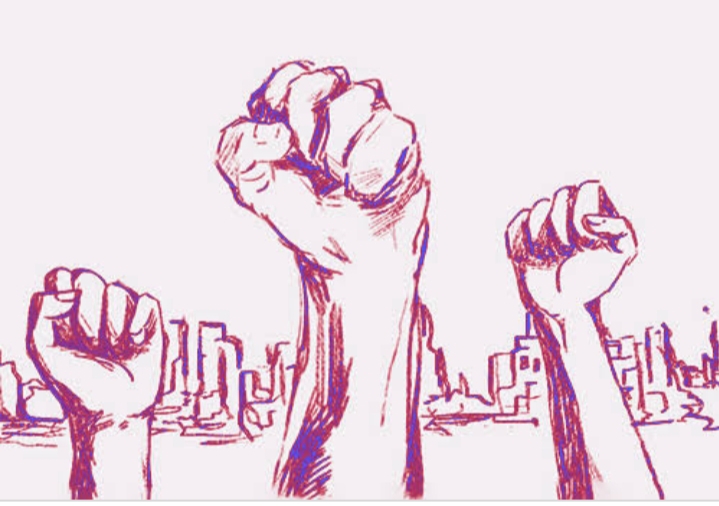Calling out oppression
I stumbled upon an article in one of my social media feeds this morning during my travel to the clinic. Nora Fatehi is getting flack for her comments on feminism. In a recent podcast she is quoted to have said that "I dont need anybody" kind of feminism has destroyed the social fabric and women must play a role as nurturers. She has subsequently defended her statement that she only referred to toxic and radical feminism in this manner and is not opposed to the feminist ideology. Some commentators have asked, "have we become over-sensitive"? Are we overdoing activism, by raising voice against everything? This article got me thinking and several important events in my life that transpired over the past couple of months flashed across my mind.
Last week we had a research team meeting. We were discussing our job responsibilities for the week. There was a major temple festival ongoing in the nearby town. The main festival day, Saturday, was declared as a local holiday. So we discussed about it and decided that to compensate for the local holiday, they will work on Sunday. As I summarised the decision, I said, "All of you who worship in the temple, pray well on Saturday and come to work on Sunday" One of the members who belongs to a different faith quipped, "Those who worship in the temple can go to the temple on Saturday and come to work on Sunday, what about those of us who go to worship on Sunday?" It was an important question, and I went quiet after that. I did not intend to discriminate against a person belonging to minority faith, or generalise about worship patterns. But my majoritarian mindset, insensitive to the fact that people practicing other faiths were also present in the audience, spoke those words. My initial response to what the staff member commented was that of disappointment. I spoke to my colleague about the incident and told her, "Why did that staff speak like that? We are not the type of people who discriminate. Why was she not able to see who we are and filter her comments? Why is she being over-sensitive?" Today, after reading about Nora Fatehi's comments on feminism and the counter remarks about being oversensitive and overdoing activism, I was reminded of this event and I have been reflecting on it.
I will narrate another incident which happened last month. I was member of the ethics committee of our organisation. There are a few senior members who are strong advocates for the safety of research participants. I had submitted a research proposal related to intimate partner violence to the committee. During the review, one of the recurrent themes was that our research was not safe and could be exploitative. I took the comment quite personally at that time. It was personal to me because I had invested many years of concerted work in that community and had strong moral ties to the people. I took their well-meaning comments as personal affronts against me. I found myself asking "Who are they protecting the community from? How did they decide that we would harm the community? Are they over-doing this advocacy for protection of research participants?" Today, while I was reflecting on the Nora Fatehi episode, this incident also flashed across my mind.
The Nora Fatehi episode, has got me thinking and has sensitised me to my majoritarian and patriarchal mindset. When the staff made the comment about faith based discrimination, she actually called me out in public about my majoritarian mindset. I have been thinking of myself as an inclusive person who does not discriminate based on faith. I try to practice that in all my conscious actions and decision. But this remark of mine was not aligned with that inclusive nature. She was right in calling me out. She was actually not calling me out. She was calling the majoritarian attitude out. She was pointing out the insensitivity of the leader of the team to the needs of people belonging to a minority faith group. The staff had no obligation to think about who I am, whether I am someone who has such discriminatory tendencies when she made that comment. Unless she raises her voice every time against such insensitivity, it will not reduce. If she hadn't called me out in public, I wouldn't have had this opportunity to be in touch with my majoritarian mindset.
Similarly, the members of the ethics committee sensitised me to the patriarchy that was ingrained in me. I was insensitive to the safety issues of conducting a domestic violence research in the community. They had to point it out to me. They had to call me out, loud and clear. They did not have an obligation to see who I am, what my intentions are what kind of a person i am. When they saw patriarchy, they had to call it out. In fact they were not calling me out as a patriarchal person, they were calling out my research ideas and the ethical issues in it.

I realised today that we can never 'overdo' advocacy or activism for the vulnerable. We do not have an obligation to protect anyone from calling out their patriarchy or their insensitivity. We must keep reporting oppression in any form, every time we hear it. There is no 'over sensitivity' when it comes to calling out oppression. I don't know if I have become any less patriarchal and majoritarian in my outlook after this reflection. But this epiphany has helped me understand that not taking things personally, can go a long way in sensitising us to our own biases, oppressive mindsets and misgivings!
Comments
Post a Comment